What Are the World’s Best Tax Havens?
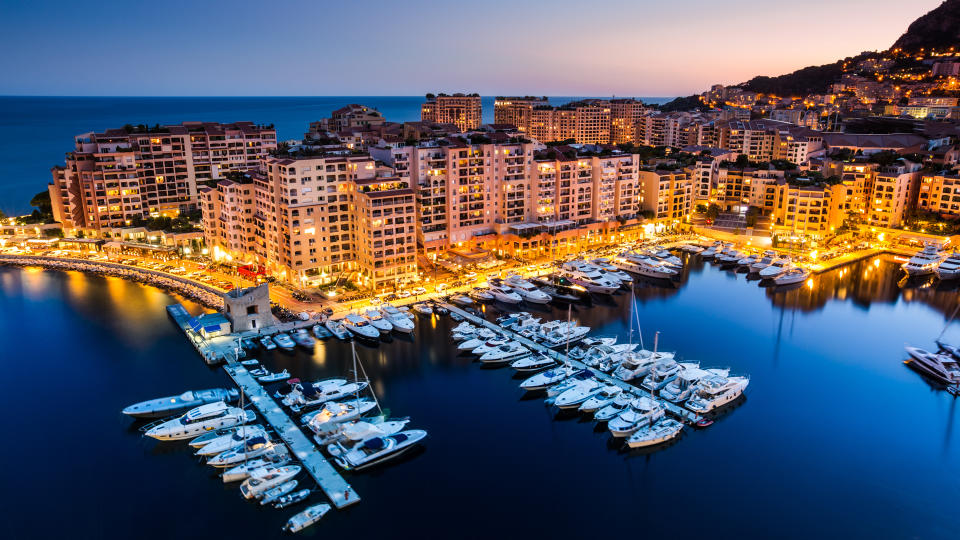
Due to the level of taxation in much of the industrialized world, many turn to tax havens. Tax havens are places where individuals and companies go to avoid paying higher taxes.
The International Monetary Fund estimates that tax havens cost governments between $500 billion and $600 billion every year — mostly in corporate tax revenue that they couldn’t collect. Moreover, at least 366 companies in the Fortune 500 base at least one subsidiary in a tax haven. According to the Institute on Taxation and Economic Policy (ITEP), Apple had booked $246 billion offshore by 2017, avoiding $76.7 billion in taxes. Apple began to repatriate that cash after President Trump reduced the tax on this cash from 35% to 15.5%. However, the tax cut will likely not completely disincentivize companies from routing money into other tax-friendly jurisdictions.
Last updated: Nov. 6, 2020
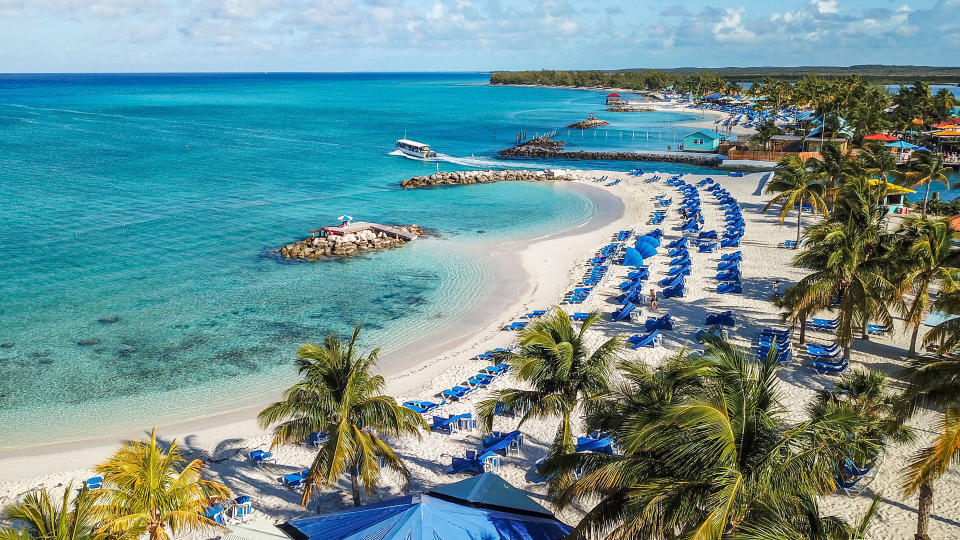
The Bahamas
The Bahamas is a former British colony that gained independence in 1973. This Caribbean island nation attracts tax avoiders due to its lack of withholding or corporate taxes. Instead, it derives its revenue from taxes such as import duties, value-added taxes and license fees. This and its proximity to the U.S. makes it an attractive tax haven.
It has become a center for banking activities. Companies also benefit from secrecy laws that do not require submission of accounting records to the government. For this reason, one can see why the likes of Goldman Sachs and JPMorgan Chase operate subsidiaries there. However, companies outside of banking, such as Viacom, have also chosen to operate in this country.
Check Out: Most Popular Things to Do With Your Tax Refund — and How to Do It Smarter
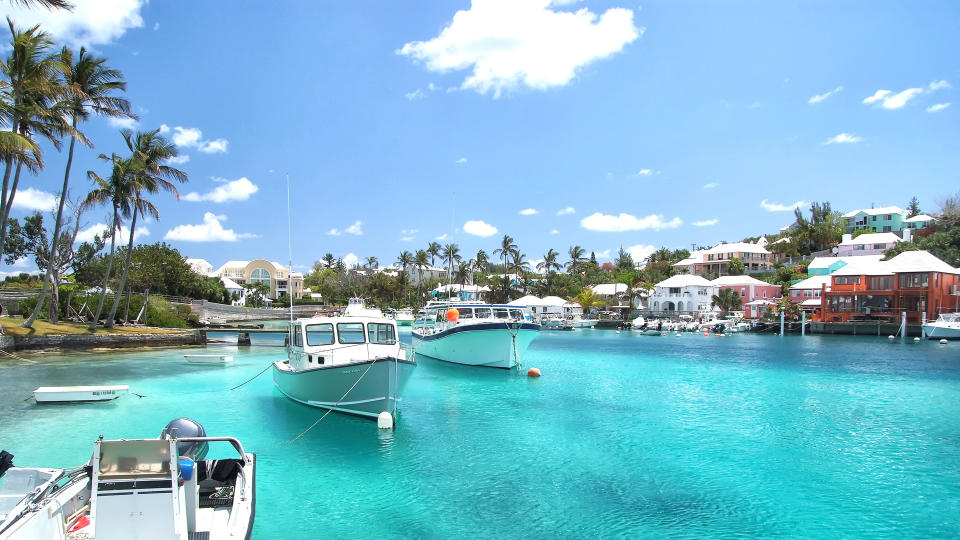
Bermuda
Situated between the United States and Europe, Bermuda has become a popular tax haven. Like in the Bahamas, it imposes no taxes on corporate income, interest, dividends or royalties. Corporations such as Nabors Industries and Signet Jewelers have chosen to base their operations in the British Overseas Territory.
Bermuda has also found itself in the middle of prominent tax avoidance schemes. The Paradise Papers reported that Nike shifted some of its European profits from the Netherlands through Bermuda tax-free. Google also sheltered $23 billion from overseas to Bermuda in 2017. Regulators have pressured countries to close some of the loopholes that make such income shifting possible. However, given the territory’s policies and proximity to both the U.S. and Europe, it will likely remain a popular financial and business center.

British Virgin Islands
The British Virgin Islands, like Bermuda, remains a British overseas possession. However, also like Bermuda, the benign neglect of British rule has enabled its tax haven status. Despite a population of less than 36,000, the BVI is home to over 400,000 companies and holds an estimated $1.5 trillion in assets.
Deloitte’s international tax guide states that the islands levy no tax on interest, dividends or corporate income. However, they do impose payroll taxes totaling 10% or 14% on all income above $10,000. Financial services also account for 62% of the government’s revenue.
Officials insist that the BVI is not a tax haven country. However, few seem fooled as it faces a continuous threat of being placed on the EU’s tax haven blacklist.
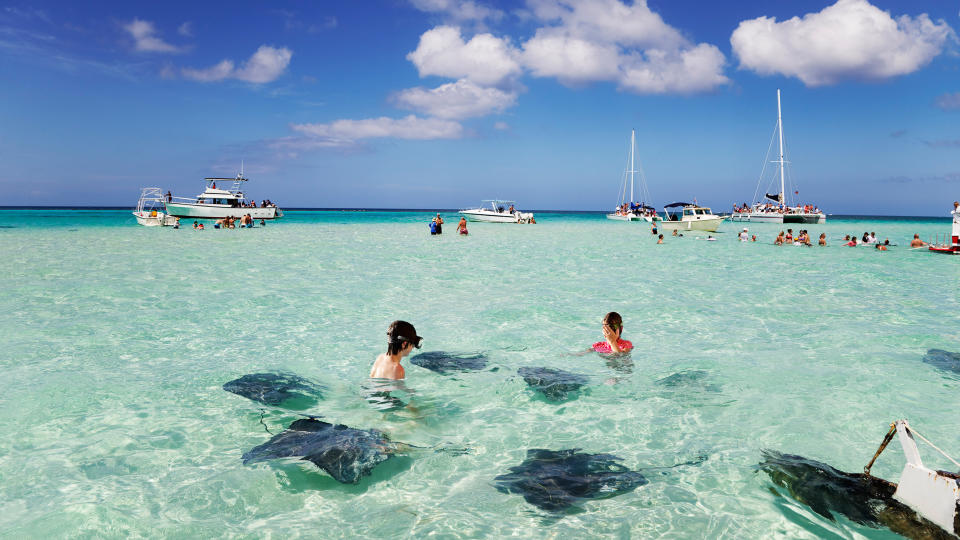
Cayman Islands
Like other British Overseas Territories, the Cayman Islands has become one of the more prominent tax havens. Despite a population of just over 59,600, more than 65,000 companies base themselves in the territory. These include the American depository receipts, or holding companies that make it possible for Alibaba, Baidu and other China-based operations to trade on U.S. stock exchanges.
Crystal Stranger, lead accountant at Greenback Business Services, considers the Caymans “probably the biggest (tax) loophole now for individuals as well as the multinational corporations.” One area where it stands out is banking. Despite its small size, it accounts for almost 1/15 of the world’s $30 trillion in banking assets, according to The Guardian.
Look: How to Protect Your Tax Refund From Being Stolen

Channel Islands
The Channel Islands is an archipelago off the coast of Normandy. Despite its location, the islands belong to neither France nor the U.K. However, English is one of the official languages, and Britain is responsible for defending the islands. The islands are actually two British Crown dependencies, the Bailiwick of Jersey and the Bailiwick of Guernsey.
However, the Channel Islands have become best known as a tax haven. Corporate taxes are 0% for most companies, though they rise to 10% if an entity is labeled a “financial services company” and can go as high as 20% for other types of companies. It also does not levy capital gains tax or inheritance taxes. According to the Paradise Papers, Apple moved its tax residency to Jersey in 2014 and stored as much as $252 billion in offshore cash in Jersey.

The Isle of Man
The Isle of Man is a self-governing British Crown dependency located in the Irish Sea between England and Ireland. Aside from being known as the birthplace of the Bee Gees, it has also developed a following as a place to shelter wealth.
The Isle of Man does not tax capital gains or inheritances, and it levies no taxes on companies. Many companies also hold pension benefits there as some beneficiaries can collect benefits as early as age 50. However, they like to keep a low profile. When the Paradise Papers shed light on how wealthy individuals sheltered assets in the dependency, a local politician described the revelation as an “orchestrated attack from the international media.”

Ireland
As late as the 1990s, Ireland was considered one of the poorest countries in Europe. However, joining the EU and reducing corporate taxes to 12.5% seemed to transform the country overnight. It would go on to attract more than 700 multinationals into the country, among them Airbnb, Facebook and LinkedIn.
While Irish officials may shy away from the “tax haven” label, the Republic has come under scrutiny. In 2013, Apple had to pay a record fine of 13 billion euros ($14.4 billion) after finding that a deal between Apple and Ireland broke EU tax laws. According to the Paradise Papers, this led to Apple shifting its overseas cash to the Channel Islands.

Luxembourg
Luxembourg is a tiny EU country nestled between France, Germany and Belgium. This country of about 614,000 people has managed to attract capital with its business-friendly tax laws. However, the policies seemed too friendly for the EU, who said it was one of the countries which “displayed traits of a tax haven and facilitate aggressive tax planning.” However, the EU credited it for taking steps to limit those practices.
Still, Luxembourg remains a favored location among the Fortune 500. Approximately 35% of Fortune 500 corporations operate a subsidiary in Luxembourg, according to the ITEP. Among these is Amazon, who chose Luxembourg as the home of its European headquarters.
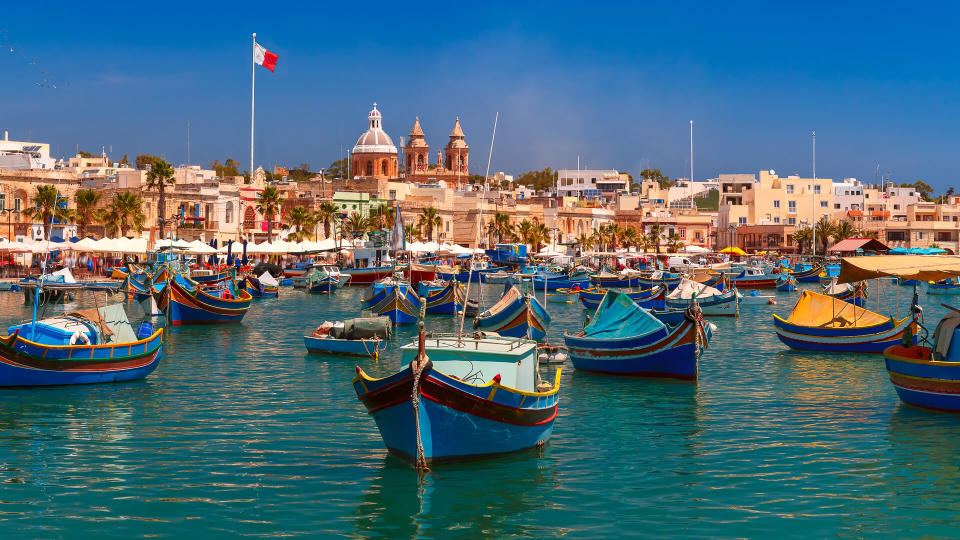
Malta
Malta is a sovereign country off the coast of Sicily. It is one of the smallest members of the EU. Once a British colony, this tiny island nation of just under 500,000 people became independent in 1964.
Some journalists have labeled Malta a “pirate base” for tax avoidance. The Paradise Papers have also cited Malta among a list of tax havens. However, officials insist that they have complied with EU laws.
Though local companies pay a corporate tax rate of 35%, some outside entities pay 0-6.25%. Slightly less than 5% of Fortune 500 companies operate a subsidiary on the island, according to the ITEP. Morgan Stanley, Marriott International and Abbott Laboratories are among these corporations.
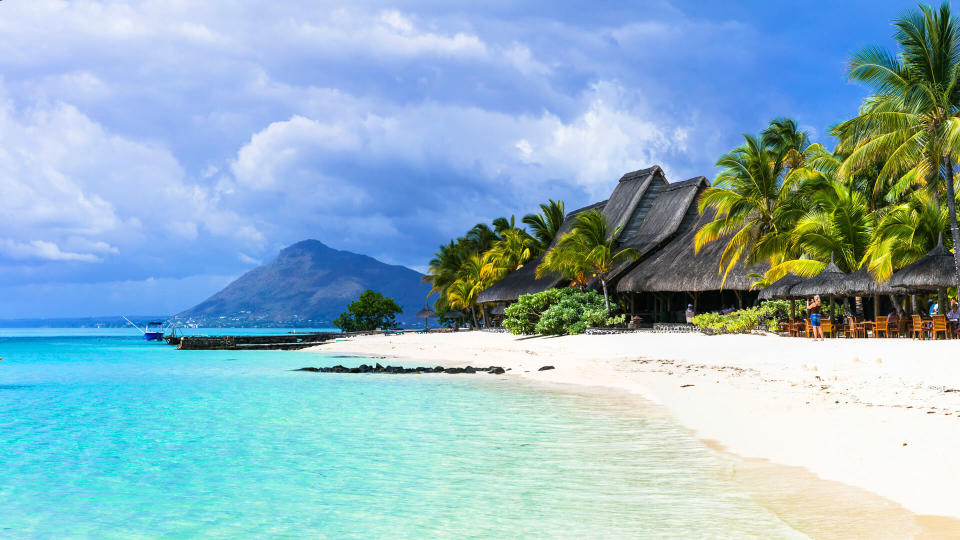
Mauritius
A tiny island nation situated off the coast of Madagascar seems like an unlikely location for a tax haven. However, the corporate tax rate has attracted a large percentage of the Fortune 500 to Mauritius. Companies pay a 15% tax on their income. Individuals pay no capital gains tax, and the country levies a 3% tax on dividend income from abroad.
Despite its remote location, it has attracted significant interest from U.S. corporations. Goldman Sachs, Morgan Stanley, Citigroup and JPMorgan Chase are among the 78 Fortune 500 companies that operate there, according to the ITEP.
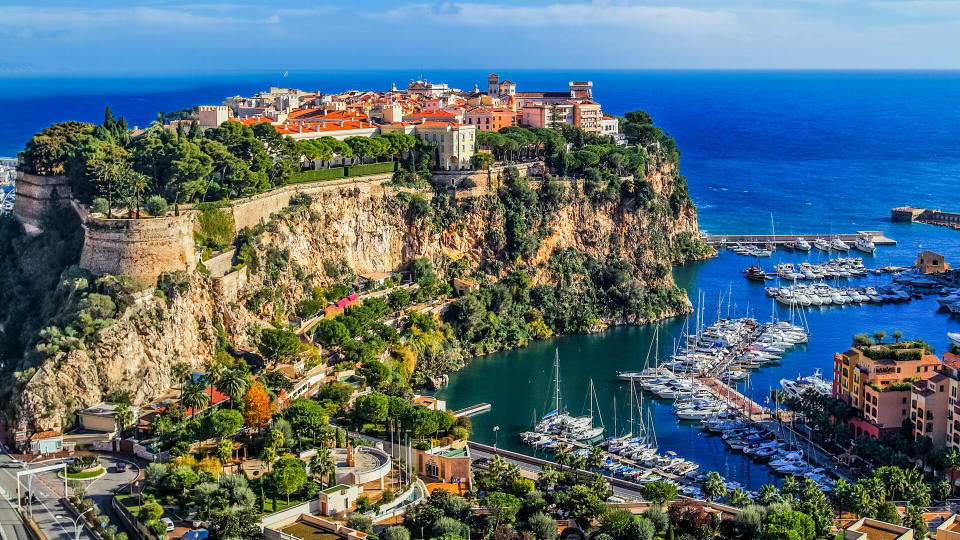
Monaco
The Principality of Monaco is a 0.85-square-mile city-state situated on the French Riviera. Long a favored destination of the world’s wealthy, it has also become an attractive locale for wealth itself. Individuals do not pay income tax, and businesses do not face direct taxation in most cases.
Despite low taxes, operating in Monaco does not come cheap, as it boasts some of the world’s most expensive real estate. Despite its costs, seven Fortune 500 companies operate subsidiaries in the principality, according to the ITEP.

Netherlands
Officials in the Netherlands, like those in other tax havens, shy away from this labeling. Jan Kees de Jager, the former finance minister in the Netherlands and now-CFO of KPN, called any association with the likes of the Cayman Islands or Switzerland a “profound insult.”
However, according to the ITEP report, the Netherlands is the world’s most popular tax haven among the Fortune 500. The Dutch have long allowed corporations to reduce their tax burden by moving money through Dutch subsidiaries. Moreover, tech giants such as Google and IBM have a significant presence in the country, and Fiat Chrysler chose the country as its corporate headquarters.
Learn: The Average IRS Tax Refund Amount
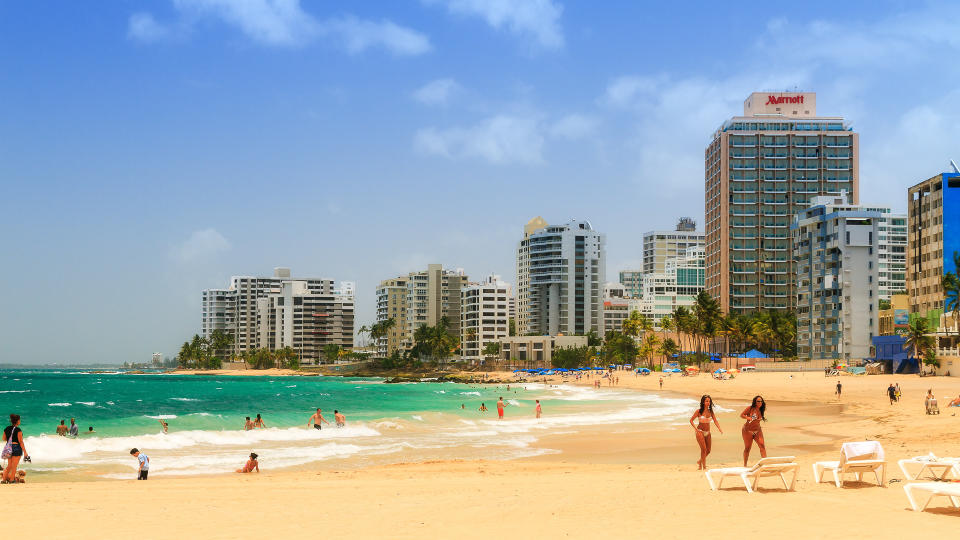
Puerto Rico
In the United States, the 2018 tax season left taxpayers with an average refund of $3,186. Many taxpayers seek to protect this refund or find an appropriate place to spend or invest the refund. But what if you never had to give the money to the government in the first place?
You may want to consider moving to Puerto Rico. In recent years, it has become best known for its bankruptcy and natural disasters, and at first glance, it might seem closer to a quagmire than a haven. However, more Americans could soon learn to appreciate Puerto Rico as a legal tax shelter. After all, why risk tax evasion when such tax avoidance options are possible?
This applies well to Puerto Rico, as full-time residents of Puerto Rico generally do not pay U.S. federal income tax, even though Puerto Ricans are U.S. citizens. Moreover, in 2012, Act 22 extended the tax exemption to interest, dividends and capital gains. This gives wealthy Americans a way to avoid taxation without surrendering their U.S. passport.
There is a catch. To get this break, you must become a bona fide resident of Puerto Rico for the entire tax year. Also, you have no federal voting rights as a Puerto Rican.

Singapore
Many consider Singapore one of the best countries in the world for taxes. Situated at the southern tip of the Malay Peninsula, it was once mired in poverty. In 1965, it had attained a per capita GDP of only $516. It was then that the government began to improve education, clamp down on corruption and cut tax rates. Little wonder it has grown to a population of around 6 million and boasts a per capita GDP of $94,100.
Singapore assesses a 17% corporate income tax, not including tax incentives, and the city-state does not tax dividends. According to the ITEP, more than 40% of Fortune 500 companies operated a subsidiary in Singapore in 2016.

Switzerland
Switzerland has long served as a European financial hub. Its low taxes and reputation for secrecy have made it a tax haven of choice. While some of the secrecy laws are now gone, its reputation for reasonable taxation remains. Switzerland levies a corporate tax rate of just 8.5%.
While the Global Financial Centres Index from Long Finance no longer considers Zurich a “top 10” financial center, it remains a popular tax haven. According to the ITEP report, about 35% of Fortune 500 companies operate at least one subsidiary in the Swiss Confederation. These corporations include Marriott International, Morgan Stanley and PepsiCo.
More From GOBankingRates
Over Half of Americans Are Missing Out on Free Money — Are You One of Them?
Are You Spending More Than the Average American on 25 Everyday Items?
Guns and 32 Other Things You Definitely Do NOT Need To Buy During the Coronavirus Pandemic
This article originally appeared on GOBankingRates.com: What Are the World’s Best Tax Havens?
